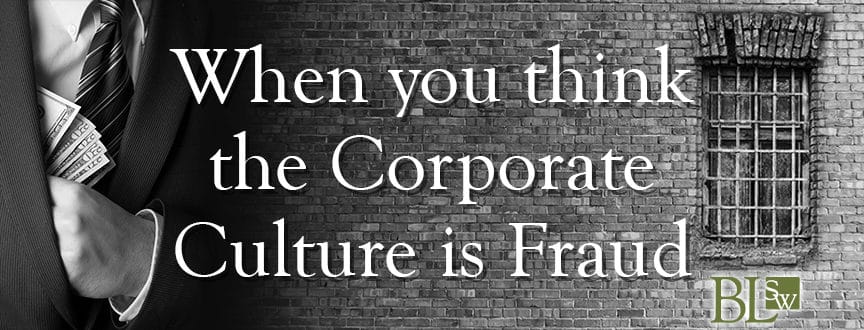In the mid 1990’s I was diligently climbing the corporate ladder. Having just graduated from college a couple years earlier, I was a bank branch manger for a regional bank. I loved my employer. It was a caring organization that operated in about half a dozen states. They had taken a chance on a young kid and were further investing in me by paying for most of my MBA tuition. Since things were going so great, maybe I should have anticipated they would take a turn. After a failed merger that left my bank’s stock plummeting, a large, national bank stepped in to buy our bank at a bargain. Since the national bank already had a substantial presence in the city, regulation forced them to divest most of the branches, keeping only around half a dozen. The banking giant retained the more successful locations, that had the largest deposits and best sales records. I was now an employee of the mega bank. While sad for my banks demise I felt excited about the possibilities and looked forward to the first interactions with the new “bosses”.
Meeting the new management
At our first meeting the VP managing the bank branches seemed distressed that all the managers inherited from the merger had college degrees. She seemed a bit confused and was saying things to the effect of “that can’t be right”. She later came to us and said she wanted to see copies of our diplomas. My diploma? I was taken aback that she didn’t prefer a copy of a transcript or if she was doubting whether we did in fact have college degrees, why she simply didn’t have the HR department confirm the degrees with the institutions themselves. No, she wanted a photocopy of our diplomas sent to her. In the same meeting she also became visibly upset when she saw what our salaries were. “Ridiculous” was repeated several times. The six of us looked around dumbfounded. Never had any of us had someone try to “shame” us for being educated. Shortly thereafter we were told our pay was frozen as we exceeded the pay scale for our job roles. My new manager also informed me they would not be paying for most of my MBA classes any longer. I could not understand why a successful bank seemed to frown on educated employees … until the sales meetings started happening.

The sales goals the bank expected us to meet were ridiculous. Make no mistake; they were absurd. No one could have possibly instituted the sales goals standard and thought the goals could be met legitimately. The local management swore that there were bank managers out there who were in fact leading their teams to remarkable sales success. New sales records were being broken every quarter!
I had always been a top seller. I had been selling products and services since I was 16. Repeatedly, I had been recognized for profitability and customer service. I could do this. I visited with the top 3 managers in the city whose teams were actively meeting these goals. How did they do it?
Ridiculous goals = Immoral Business Practices
Essentially, they told me the goals were ridiculous, and if me and my team wanted to keep our jobs, incorporation of the following simple techniques would prove to be necessary. At the end of the day, if the branch had not met its daily sales goals for online accounts or online debit cards for example, simply pull the information of clients who had transacted business at the branch that day and open some products for them; without their consent, of course. If an investigation was ever done, the bank employee would be able to prove the customer was in the bank that day. So, if the customer claimed they had never signed up for a product or service, the claim would be questioned since the systems would demonstrate they could have authorized the sale in person when they were in the branch. Another suggestion was to turn in credit card applications for clients or accept pre-approvals for credit cards that sometime came up automatically when bankers transacted searched a client by name in the system. Again, the “Good Managers” suggested that I just close the account later for the customer if they complained they didn’t want it. The “Good Managers” explained to me their theory that most people are happy when a credit card randomly shows up in the mail.
I returned to work and had a meeting with my team. I explained to them other locations were using questionable practices and we would not be doing it at our location. As time passed, customers would increasingly come in our location inquiring on issues such as why they had received a credit card in the mail? Why did they receive information about an online banking account? Why were they paying for car insurance they had not signed up for? After about a year of this, I scheduled a meeting with the VP in charge of branches. I dreaded having to give her the bad news as to what was taking place in the branches and how it was becoming progressively worse.
My mouth dropped open. I could not believe what I was hearing. I pointed out that customer’s credit was being pulled in many of these instances. I asked about fees and interest the clients would most certainly be charged. The “Good Managers” shrugged it off. They told me most people don’t check their credit reports or even understand them. They also told me they didn’t worry about the bank as a company; they were “too big to fail.” These “Good Managers”, most of whom had no formal education past a high school diploma, could not see the problem. In fact, they considered themselves excellent employees for delivering to management what they wanted. What management wanted was widgets with no consideration for the bigger picture.

I explained everything to her. She paused, pressed her lips together and narrowed her eyes at me. “I think your jealous” she told me. “You were a big deal at your last bank and you’re not having the same success here.” She also went on to tell me that I was not “being a team player” by tattling on fellow managers. I remember I felt like the room was spinning. This was not the reaction I had expected from her. I told her I was concerned the behaviors could be considered criminal even citing the possibility of mail fraud. She shook her head and repeated, “no, no, no”. She told me what I was describing was not a “big deal” and probably not even happening as I described. I continued trying to convince her otherwise. I told her I was concerned it would hurt the company, since all fake accounts, cards, etc. may never be used; wouldn’t that skew numbers and profitability projections? She looked at me, tilting her head as she did and sighed. I felt she was approaching the conversation with me as she would trying to reason with a four-year-old. She assured me I was not smarter than the executives knew what they were doing. She indicated I should return to my office and “think about” ways to get more sales on the board. I was literally shown the door. From that moment on, I knew my days, had I wanted to stay, would be numbered.
It all made sense now. She knew.
Why had I come to her? It all made sense now. I figured she must have known. I guesstimated that if she did know, then what was happening in my community was most likely not an isolated thing. Her dislike for educated employees could possibly be translated into a desire to have “Minions” who could not possibly fathom the depth of deception they were perpetrating. The need for the “Minions” to protect their jobs had created a culture of deception and dishonesty that if left unchecked, would only grew upon itself year after year. The VP of bank branches, just like her managers, did not have a degree. For all of them, a “bank job” was the best job they would ever have. The money these employees were making was solid; as were their benefits and retirement accounts that continued to increase year over year driven by the superior performance of the banking giant’s stock.
[Read: What To Do If Your Partner is Stealing From the Company]
By the time I had put all the pieces together I was 90 days from completing my MBA and 120 away from giving birth to my daughter. I resigned after my maternity leave. I left a lengthy description in my letter of resignation as to my concerns and experience with the “dishonesty” that I feared was running rampant in the organization. I heard nothing back. No HR specialist, no corporate security investigator ever reached out. I told myself my departure had merely opened the door to replace me with another obedient “minion” who would play the game. I took the time off to be with my daughter and reflect on whether I even belonged in banking. Maybe I was naive? Maybe this is how all businesses run? Maybe as the VP had pointed out, it was “no big deal” and I was the fool for letting it weigh on me so heavy?
I learned from their mistakes, and made the right choices.
When I did re-enter the world of banking, I made a conscious effort to avoid the banking giant I had once unsuccessfully worked for. I worked in the banking industry for about 20 years, avoiding “The Giant” the entire time. I rose to the position of Senior Vice President. I made a lot of loans and cultivated a great client portfolio. As a result, I made a very good living for myself and kids. I did not achieve my success through fraud, deceit or forgery though I suspect many of my former coworkers did. I managed to have surpassed the individuals who had indicated to me they actively cheated their way from pay check to pay check. My career had eclipsed even that of the VP who I felt had mocked me for speaking up.
I wish I could go back in time and talk to the young, inexperienced professional I was back then. I would like to tell her that she should go talk to an attorney. I would tell her she should call a journalist. I want to reassure her that there was nothing wrong with her and she will find ways to be successful in the banking industry that do not include committing fraud. The fact of the matter is, at the time, I wasn’t sure that fraud was indeed what was happening. After all, senior management of one of the world’s “Most Admired Brands” had said it was not.
[Read: Complex Criminal Defense—Computer Crimes and Fraud]
Many years have passed from when I tried to sound the alarm to when banking scandals made the front page of all the papers in 2016. Many opportunities passed during those years for large banks to pump the brakes and weed out the leadership that was taking the company and its customers down a poisonous path. There were many times employees could have banded together and gone to the press. In the end, it was the consumers who “wouldn’t care” that their information was being mishandled that brought the issue into the light. Naturally, only after their credit had been damaged, their private information compromised, their homes foreclosed on and millions of fees and interested had been wrongly charged to them.

What’s changed?
Over a decade and more than a billion dollars in fines issued to the banking industry later, I hardly feel vindicated. Really, have things really changed? Bank stocks still perform well for their investors, despite all the scandals. And, I suppose the “minions” I looked down on for being under educated to work at a bank were correct to have laughed off my concern all those years ago. Some banks, as it turns out, are too big to fail, after all.
Do you work in an atmosphere in which theft, money laundering, insider training or mail fraud is part of the corporate culture? Maybe you own a business and have just figured our why some of your employees are performing “exceptionally well”. If it’s happening, do something! Not all businesses are too big to fail. Not all employees can rebound after standing up for themselves. Can you or your business survive a scandal? Contact us or Call 505.848.8581 today and let’s have a discussion.






